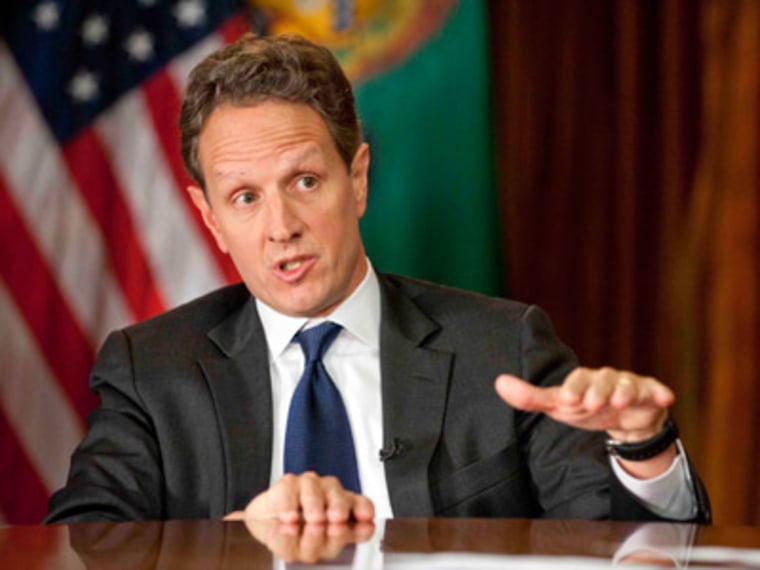The looming fiscal cliff isn't the only deadline facing the U.S. government. The U.S. Treasury Department announced on Wednesday it will implement delay tactics to avoid reaching the debt ceiling. Without any action, the government will exceed its $16.4 trillion borrowing limit on December 31.
In a letter to congressional leaders, Treasury Secretary Timothy F. Geithner, who had previously estimated the U.S. would max out by the end of the month, said the Treasury will undertake “extraordinary measures” in order to buy more time before defaulting on loans. These emergency measures will save $200 billion in additional funding available to the government, giving Congress about two months before it must raise the debt.
This announcement could introduce a new urgency to the debt limit as a bargaining chip in stalled fiscal cliff negotiations.
A new Gallup poll released on Wednesday shows that 68% of Americans want leaders to compromise on budget deal to avoid going off the fiscal cliff. But optimism appears to be waning; now only 50 % are confident a deal will be reached and 48% remain doubtful.
On Wednesday, House Republican leaders, including House Speaker John Boehner, Majority Leader Eric Cantor, Majority Whip Kevin McCarthy, and Republican Conference Chair Cathy McMorris Rodgers, issued a joint statement on the fiscal cliff on Wednesday:
“The House has acted on two bills which collectively would avert the entire fiscal cliff if enacted. Those bills await action by the Senate. If the Senate will not approve and send them to the president to be signed into law in their current form, they must be amended and returned to the House. Once this has occurred, the House will then consider whether to accept the bills as amended, or to send them back to the Senate with additional amendments. The House will take this action on whatever the Senate can pass, but the Senate first must act. The lines of communication remain open, and we will continue to work with our colleagues to avert the largest tax hike in American history, and to address the underlying problem, which is spending."
President Obama, who cut his Christmas vacation short in Hawaii, headed back to Washington on Wednesday to resume talks.
The Democratic-lead Senate will be in session on Thursday. It's unclear when House Republicans will reconvene.
